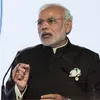Coronavirus: Online medicine delivery platforms hope for smooth operations after government notification amid lockdown
While PM Modi had assured that essentials will be available during the lockdown imposed to curb the coronavirus spread, companies failed to deliver orders.
The ongoing lockdown due to the coronavirus pandemic has left nearly one-fourth of the global population in lockdown. In India, Prime Minister Narendra Modi announced a 21-day lockdown, starting Wednesday – perhaps the biggest action taken anywhere to stop the spread of the coronavirus.
“There will be a total ban of coming out of your homes. To save India, to save its every citizen, you, your family, every state, every district, every lane, every village will be under lockdown,” said Modi. While he appealed the public to not panic, citizens rushed to grocery stores in large numbers across the country.

The rush and panic buying left several Indians without access to essential commodities, including medicines. The subsequent order issued by the Home Ministry did confirm that delivery of all essential goods including food, pharmaceuticals, and medical equipment through e-commerce will be allowed.
Several online delivery firms across food, medicine, and grocery faced a huge spike in demand before the lockdown but failed to deliver orders due to restrictions.
Rise in orders
Speaking to YourStory, Pradeep Dadha, Founder and CEO of , said, “The country has seen an unprecedented upsurge of over 1,400 percent in sanitation products, and over 500 percent in disinfectants in the last two weeks alone.”
Dharmil Sheth, Co-Founder of , too told YourStory that the startup witnessed a 30 percent rise in business when the Prime Minister announced the ‘Janta Curfew’.

Compared to last year, it witnessed more than 100 percent spike in regular medicine orders and 200 percent spike in orders for masks and hand sanitizers.
However, the nationwide lockdown saw their services grind to a halt.
Dharmil said, “Authorities in a few cities were not allowing free movement as they were setting up a process to identify essential goods and services. There were some disruptions in the first two days of the lockdown but operations are now running smoothly. With state borders being sealed, courier-based deliveries had been stopped. However, there was a notification passed today, which allows essential services cross border. We will now be able to see these operations going live tomorrow.”
Pradeep though believes that the current challenge is that courier companies are not accepting orders. He said, “We urge the government to step in and enable the courier companies to accept orders so the medicine delivery, which is essential right now and should get delivered on time.”
Limiting order quantities
1mg, another online medicine delivery service, too faced similar disruptions across the country but has since then resumed deliveries in most cities.
The huge demand for masks and sanitisers has left most shops – both brick and mortar and online – run out of stocks. Both Netmeds and PharmEasy have fought this by placing caps on the number of masks and sanitisers one can order.
“We have capped the sales of masks to just one box per customer. Each such box contains 10 masks. For sanitizers, we have put a cap of two bottles for every customer,” said Dharmil.
This high demand for sanitizers and masks has not been prevalent in India.

Inventory not the only problem
PharmEasy confirmed that it has sufficient inventory to ensure that patients get their regular medicines. Dharmil added, “Even with masks and sanitizers, we had bulked up our stocks so that people do not face stock out issues.
Delivery-related issues are not the only cause of concern for the medicine industry, be it e-commerce companies or traditional brick and mortar stores. The pharmaceutical industry gets a major share of raw materials from China. While companies in China have started to resume operations, they too are stuck in a loop of logistical constraints.
Dharmil added that a lot of distributors and manufacturing depots of medicines were shut in the past two days because of the lockdown. There is a 30 percent reduction in staff in such agencies and has also impacted the value chain.
The Prime Minister has assured pharmaceutical companies that the government is committed to maintaining the supply of APIs (Active Pharmaceutical Ingredients) and manufacture within the country. At present, India has restricted export of about 26 APIs and formulations including antibiotics, vitamins, and hormones to ensure there is no shortage of drugs in the country.
Earlier last week, Indian Pharmaceutical Alliance said, “We are closely monitoring orders and inventories. With an adequate stock of active pharma ingredients, finished product formulations and channel availability, we'd be able to sustain the supply of medicines for the coming months. We are not aware of any medicines shortage, to date."
It also said that the alliance is in close contact with the International Generic and Biosimilar Medicines Association, the World Health Organisation, the Association of Affordable Medicines (USA), and several other associations to be prepared to tackle any potential impact on the supply of medicines globally.
Dharmil said, “Several drug manufacturers have confirmed to PharmEasy that they have adequate stock of APIs for the next two months. Discussions have also begun on commencing manufacturing of imported APIs within the country as well as exploring options to source them from new markets. Relaxation on import of ventilators and medicines too are expected from the government’s side.”
(Edited by Saheli Sen Gupta)




![[Funding alert] Online pharma startup 1mg raises Rs 71 Cr from Bill and Melinda Gates Foundation](https://images.yourstory.com/cs/2/a9efa9c0-2dd9-11e9-adc5-2d913c55075e/1mg_cofounders_-_from_right_(Prashant_Tandon,_Vikas_Chauhan,_Gaurav_Agarwal)-min_(1)1561641806291.jpg?fm=png&auto=format&h=100&w=100&crop=entropy&fit=crop)





